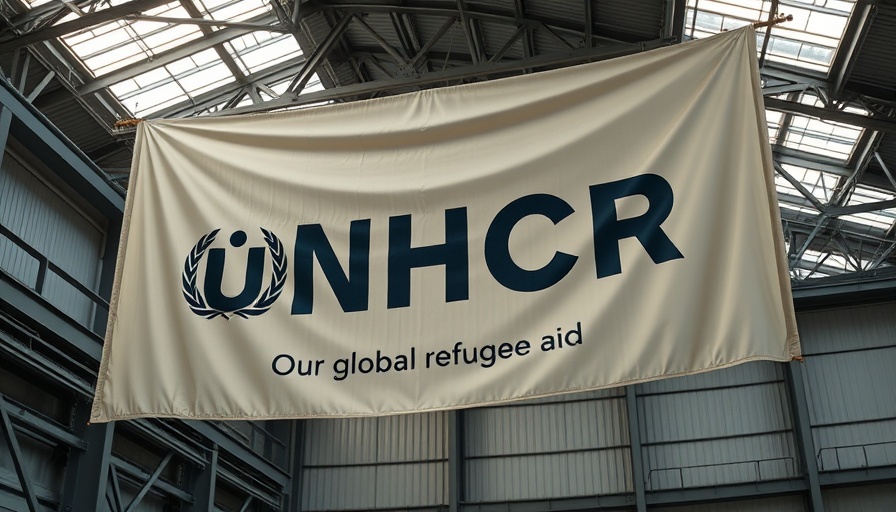
Nicaragua’s Diplomatic Shift: Understanding a Bold Move
In a surprising development, Nicaragua has officially severed ties with the United Nations High Commissioner for Refugees (UNHCR), signaling a significant shift in its foreign relations and policy regarding refugee support. This announcement, made by the Nicaraguan Foreign Ministry, raises pressing questions about the implications for both the country and the global discourse surrounding refugees and human rights.
A Contextual Look at Nicaragua's Decision
Nicaragua's departure from the UNHCR comes amid ongoing national and international tensions regarding human rights and governance. Under President Daniel Ortega’s administration, Nicaragua has experienced increased scrutiny from outside observers due to accusations of authoritarianism and tightening controls over dissent. This break might reflect an attempt by the government to assert its sovereignty and reject external pressures, particularly from organizations that may criticize its internal policies.
The Global Refugee Crisis: A Broader Perspective
As Nicaragua cuts its ties with the UNHCR, it joins a broader trend of nations reevaluating their relationships with international humanitarian organizations. Countries like Hungary and Poland have similarly restricted UN access, leading to concerns about the treatment and rights of refugees within their borders. This movement poses a challenge to global efforts aimed at supporting displaced individuals, emphasizing the importance of understanding national sovereignty versus international obligations.
Potential Consequences of Nicaragua's Withdrawal
The implications of Nicaragua’s decision could be far-reaching. On one hand, the government might see this move as a way to silence criticism and assert control. On the other hand, it raises the risk of increasing internal strife as opposition groups could cite this withdrawal as further evidence of the regime's disregard for human rights. Furthermore, refugees fleeing violence or persecution in Nicaragua may find themselves with fewer resources and support, leading to heightened challenges for both them and neighboring countries that host larger populations of Nicaraguan refugees.
Analyzing the Local Impact Amid Global Rejection of UN Aid
At the grassroots level, Nicaraguans who rely on or advocate for refugee assistance must navigate a complicated landscape. The loss of UNHCR guidance may result in a direct impact on support mechanisms for refugees within Nicaragua, which could enhance vulnerability among those fleeing violence or economic instability. Such a drastic shift raises questions about who will step in to fill this void and help provide the necessary humanitarian assistance that the UNHCR historically facilitated.
Strategies to Shield Vulnerable Populations Moving Forward
With the UNHCR stepping back, there is an urgent need for NGOs, community organizations, and regional powers to strategize and foster resilience among Nicaraguan refugees. Building alliances and coalitions with other regional organizations can play a crucial role in continuing advocacy and providing essential support. This decentralized response could bring diverse expertise and resources to create a multifaceted relief strategy, ensuring that the needs of vulnerable populations remain a priority despite the government's stance.
Navigating the Future for Refugees: A Community Responsibility
In light of this decision, the global community, especially neighboring countries, must prepare for increased movements of Nicaraguan refugees. Policymakers, local governments, and humanitarian organizations must come together to mitigate the negative impacts of Nicaragua’s withdrawal from the UNHCR. Collaboration will be key in creating systems that protect human rights and provide necessary resources, as individuals flee from adversity in search of safety.
The challenge ahead is significant, but with a proactive and united approach, it is possible to devise solutions that honor the inherent dignity of every individual, regardless of changing political landscapes.
 Add Row
Add Row  Add
Add 



Write A Comment